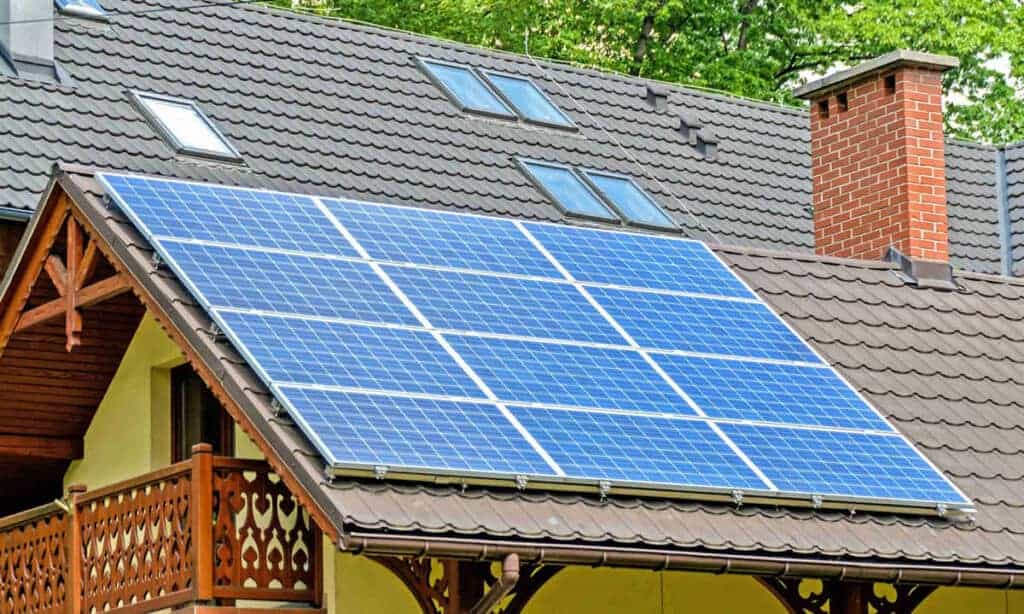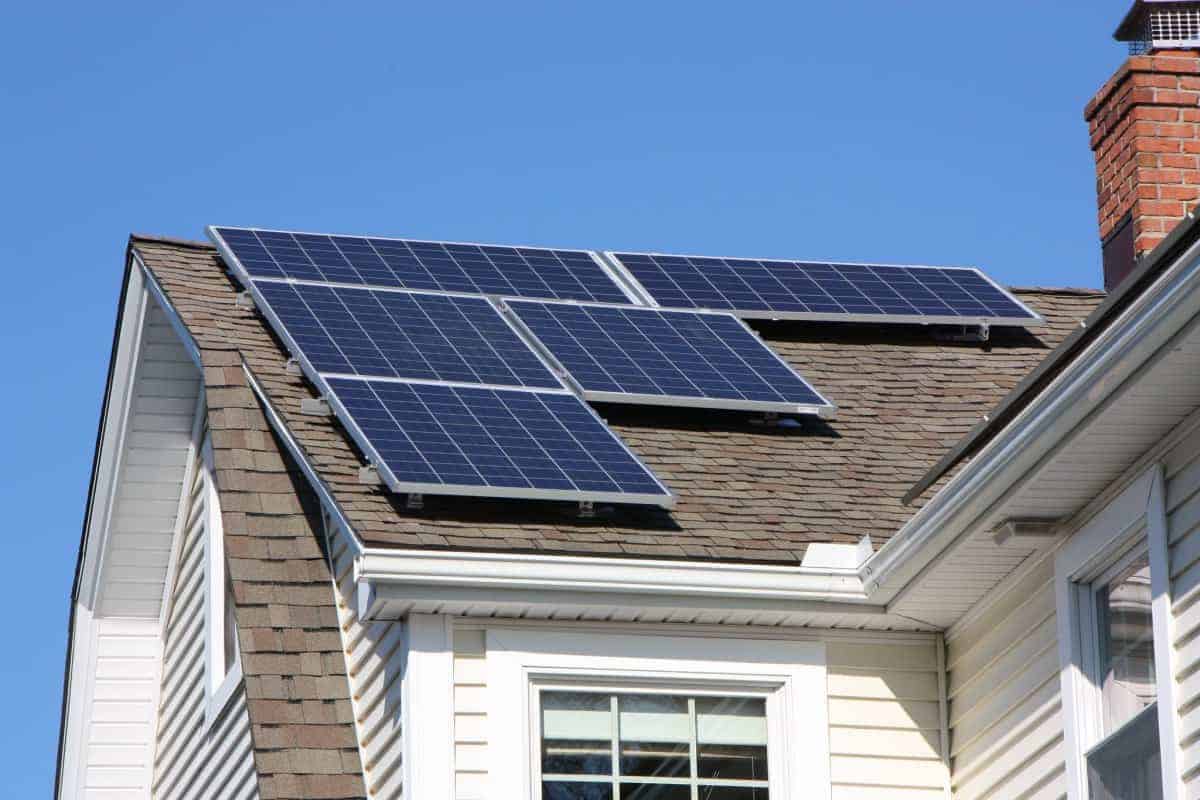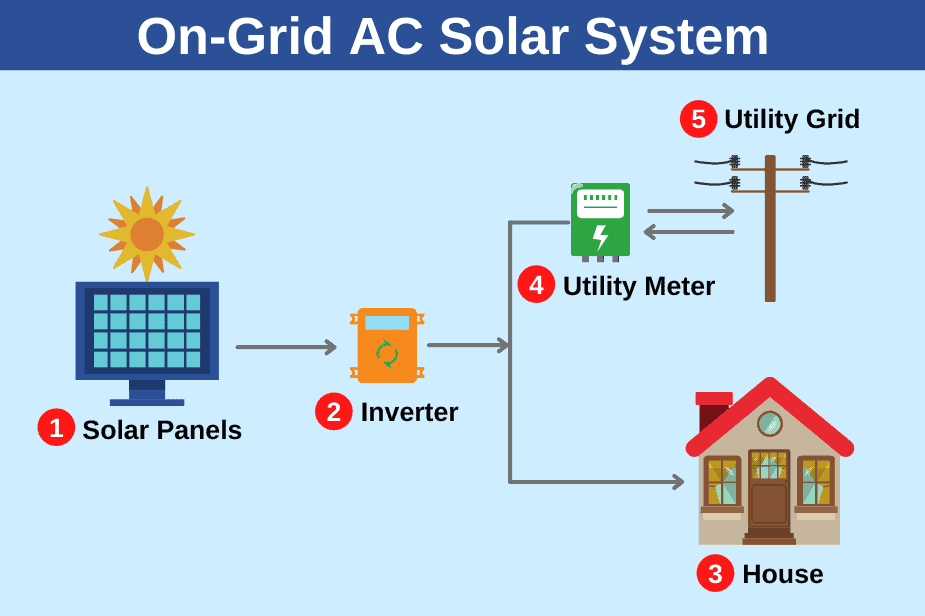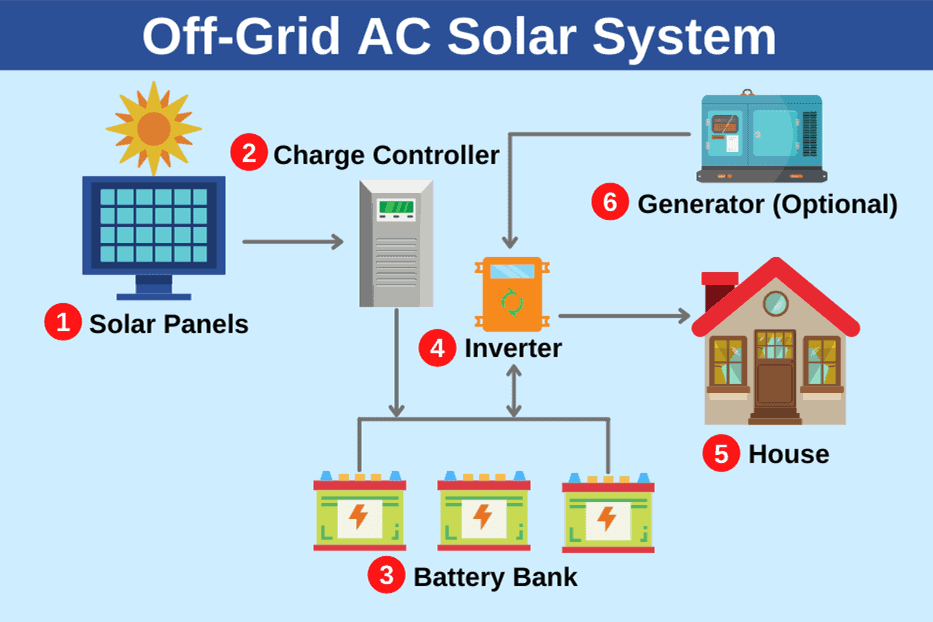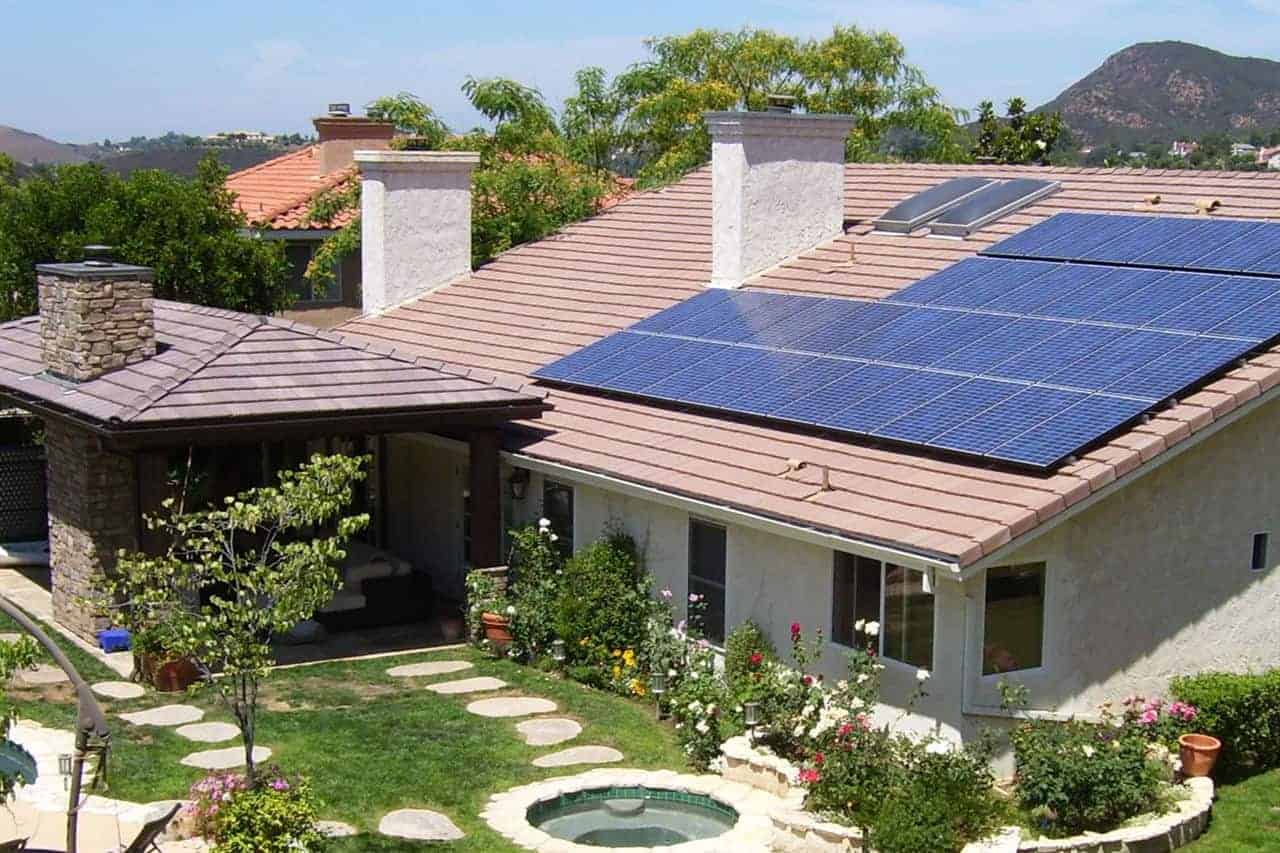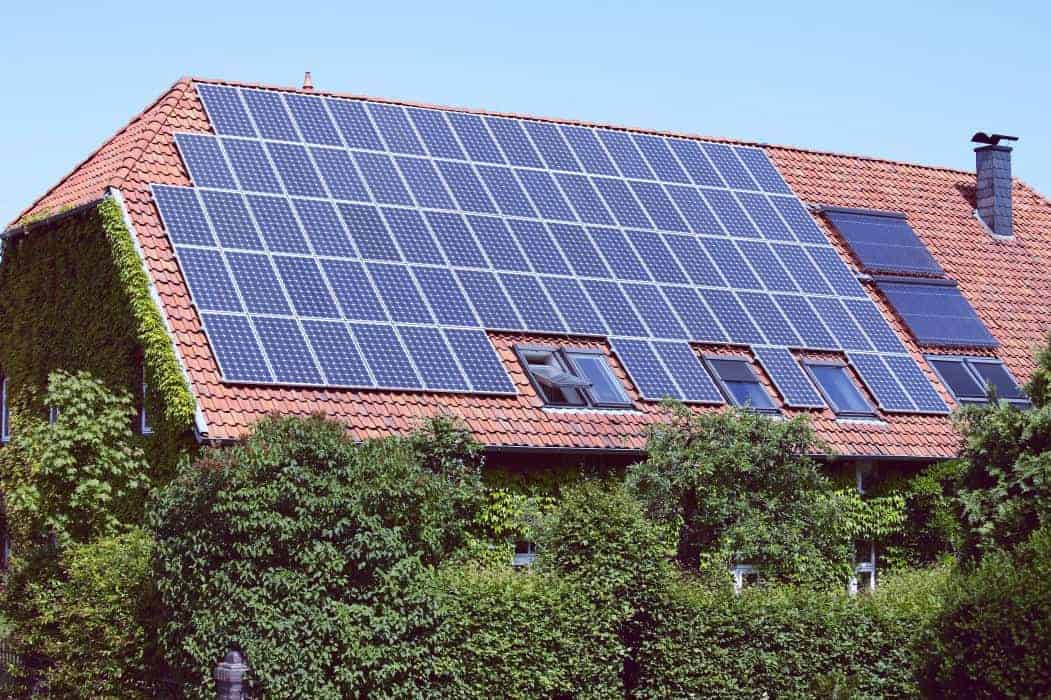Did you know that solar panels installed on a property increase the value of that property? You probably knew that, didn’t you? But did you know that in certain jurisdictions, the value that the property gains is exempt from property taxes?
But those are just some of the goodies you can expect from installing solar panels on a property.
And it really causes one to wonder, “What happens when I buy a house with solar panels?” Well, we have all the answers.
Understanding the Solar Panel System
In order to grasp the concept of buying a house with a solar panel system, you need to understand what a solar panel system is. And that’s where I come in, your personal guide into the solar and property worlds.
A solar panel system is an assortment of devices that work together to generate electricity from the sun and store the energy for domestic consumption (or export it to the grid). A solar system includes solar panels, an inverter, a charge controller, a battery pack, and some wiring to connect everything together.
Now let’s look at different types of solar panel systems that you’re likely to find on residential properties:
1. Grid-Tied Solar Systems
From the name “Grid-Tied,” you can probably guess that the system is tied to the grid. And you’re totally right; grid-tied systems are connected to the power grid. You can use your solar electricity during the day and pull power from the grid at night (when the sun is away).
A grid-tied solar system can also allow you to sell surplus solar electricity to the grid. Dinero, now we’re talking! But to reap these sweet fruits, you’ll need a net metering arrangement. Many jurisdictions allow for net metering, and they pay in Solar Renewable Energy Credits or SRECs.
2. Off-Grid Solar Systems
Off-grid systems are the complete opposites of grid-tied systems. Off-grid solar systems are not bound to the grid. They will normally have battery banks to store the electricity for night-time use. You’ll find off-grid systems in remote areas where connecting to the grid is either costly or impractical.
3. Hybrid Solar Systems
Hybrids combine the best of both worlds (grid-tied and off-grid systems). They’ll have a battery pack where they store electricity for use in case of emergencies. And by emergencies, I mean blackouts. So, get the zombies out of your head.
Hybrid solar systems help reduce your reliance on the grid. But they also won’t leave you without power in the event that the solar panel system fails. Yeah, you’ll always have power.
4. Building-Integrated Photovoltaics (BIPV)
Traditionally, solar panels are bolted on roofs or mounted on the ground. However, the emergence of BIPV systems is changing this mode of installation. Building Integrated Photovoltaics (or BIPV) are photovoltaic materials used in place of conventional building materials. For example, instead of using regular shingles, you can opt for solar shingles.
5. Community Solar Systems
These systems are the result of an arrangement by a group of residents to invest in solar jointly. You’ll find these systems in apartments due to shared roofs. Each resident gets a portion of the solar energy generated.
Now that you understand the solar systems commonly used in residential properties, we can jump into the meat of the article.
What Happens When I Buy a House With Solar Panels?
When you purchase a house with solar panels, what happens next depends on how the solar panels were acquired or financed.
That said, there are three main ways of acquiring solar panels, and they include the following:
- Buying solar panels outright
- Financing solar panels via a solar loan
- Leasing solar
Now let’s look at how these modes of solar acquisition affect you as a house buyer.
Buying a House With Fully-Owned Solar Panels
If you’re hunting for a house with solar panels, buying one with a fully-owned solar system will be your best scenario. Because you don’t have to deal with extra paperwork or put up with monthly payments. The solar panel system ownership transfers to you with the sale of the house.
That said, you’ll have to dig deeper into your pockets to buy the house. As I mentioned earlier (and repeated several times), solar panels add value to a property. A house with a fully-owned solar panel system will be more expensive than an equivalent without a solar panel system.
Buying a House With Leased Solar Panels
There are solar companies that will let you lease their solar panel systems for a monthly fee. It could be a flat monthly fee or in proportion to the electricity generated by the solar system (PPA agreement). If you’re interested in a house with leased solar, try to find out more information about the terms of the lease.
Ask the homeowner about the monthly payments and whether they escalate with time. Ask about solar system maintenance; whether the solar company is responsive. If the terms of the lease satisfy you, you can take over the solar lease and continue making monthly payments.
If not, you can ask the homeowner to terminate the lease. Read More: (Leasing Vs. Buying Solar Panels: Weigh All Your Options)
Buying a House With Solar Panels Financed Via a Solar Loan
A solar loan is a pathway to owning solar panels outright, except you have to deal with monthly payments. But as a buyer, you don’t have to worry about loan repayments because the solar loan is the homeowner’s liability.
But ensure that the asking price of the house factors in the cost of the solar system and pays off the solar loan.
Buying a House With Solar Panels Financed by PACE
Property Assessed Clean Energy (PACE) is a program that helps homeowners acquire solar panels at $0 down. And the homeowners get to pay for their solar system through their property taxes.
As per the writing of this article, California, Florida, and Missouri have active PACE programs. There are plans for New York and Ohio to adopt their own PACE programs.
For traditional loans, the debt is tied to the individual that took the loan. For PACE loans, the debt is tied to the property. So when you’re buying a house with solar panels that were financed by a PACE loan, you’re taking over loan repayments through higher property taxes.
That’s a lot to consider. But on the bright side, energy savings. Before closing the deal on the house, review the financing terms of the PACE loan.
Buying a House With Solar Panels: Pros vs. Cons
There are many merits to buying a house with solar panels. In the same breath, there are disadvantages to making such a purchase. Let’s explore.
Pros of Buying a House With Solar Panels
1. You’ll Save Some Money on Your Utility Bills
Yes, this is the biggest advantage of having solar panels. Whether the solar system is leased or you own it outright, your electric bill will be lighter.
2. Solar Panels Cushion You From Power Blackouts
Nothing is more frustrating than a power blackout. Power outages get in the way of your work and comfort. Imagine you were doing some time-sensitive work at home (and you were about to finish), then all of a sudden, lights out! How many bosses will understand your situation? Solar panel systems save you from such eventualities.
3. You Might Get a Tax Break
There are tax incentives that come with solar ownership (key phrase: solar ownership). If the solar system was bought in the same year you purchased your house, you could claim a tax relief worth 26% of the value of the solar system. And that, fellas, is the Investment Tax Credit.
I’ll let our buddies from Solera Energy explain this one.
Solar panels increase property values, and high property values mean increased property taxes. In some jurisdictions, local governments will not include the value that the solar panel system adds to your property. So you can continue paying the property taxes of old despite the house gaining in value.
4. You’ll be Happy When its Time to Sell
Solar panels inflate the value of a property. So when it’s time to sell, you’ll have a wild grin on your face; as long as you own the solar system. Leased solar doesn’t increase the value of a home. If anything, it may complicate the sale because some home buyers don’t want to deal with the paperwork.
Cons of Buying a Home With Solar Panels
1. It Complicates Roof Maintenance and Repairs
Solar panels typically go on the roof. They are bolted on mounting racks that are also bolted to your roof. So, to run maintenance or repairs on your roof may mean unbolting the solar panels, roofing, then remounting the solar panels. This means more time to do the work and more money out of your pocket.
2. A Lot of Paperwork
A real estate transaction in itself involves a lot of paperwork. Add some solar panels into the mix, and you’ll be overwhelmed. And things don’t get easier when the solar is leased. Because that means taking over the lease or terminating the agreement.
Final Thoughts
Congratulations on considering buying a house with solar panels. Bye-bye to high utility bills and blackouts. And welcome the opportunity for tax credits. And you can sleep guilt-free knowing you are doing your part in steering the world towards a cleaner and greener tomorrow.

